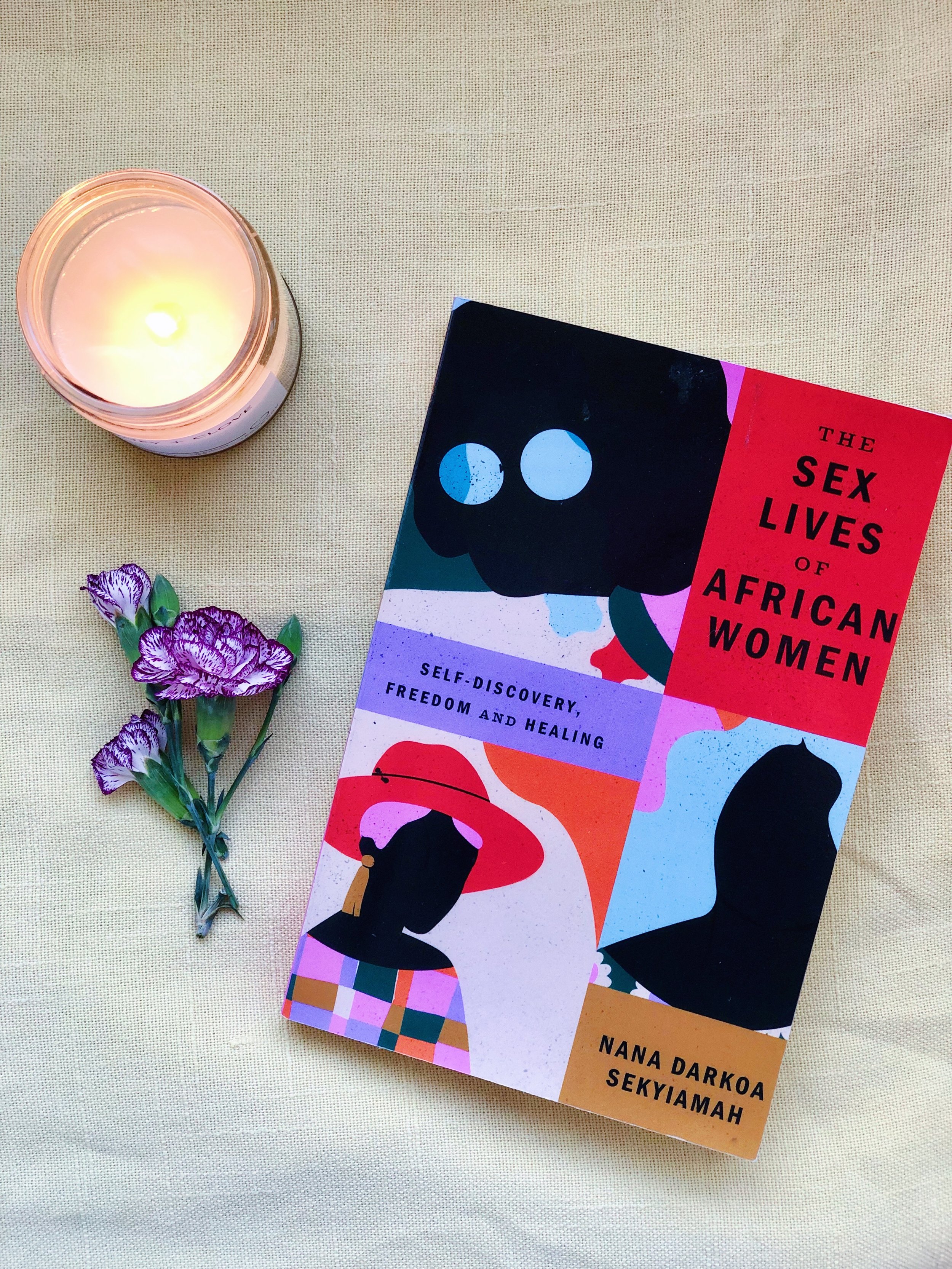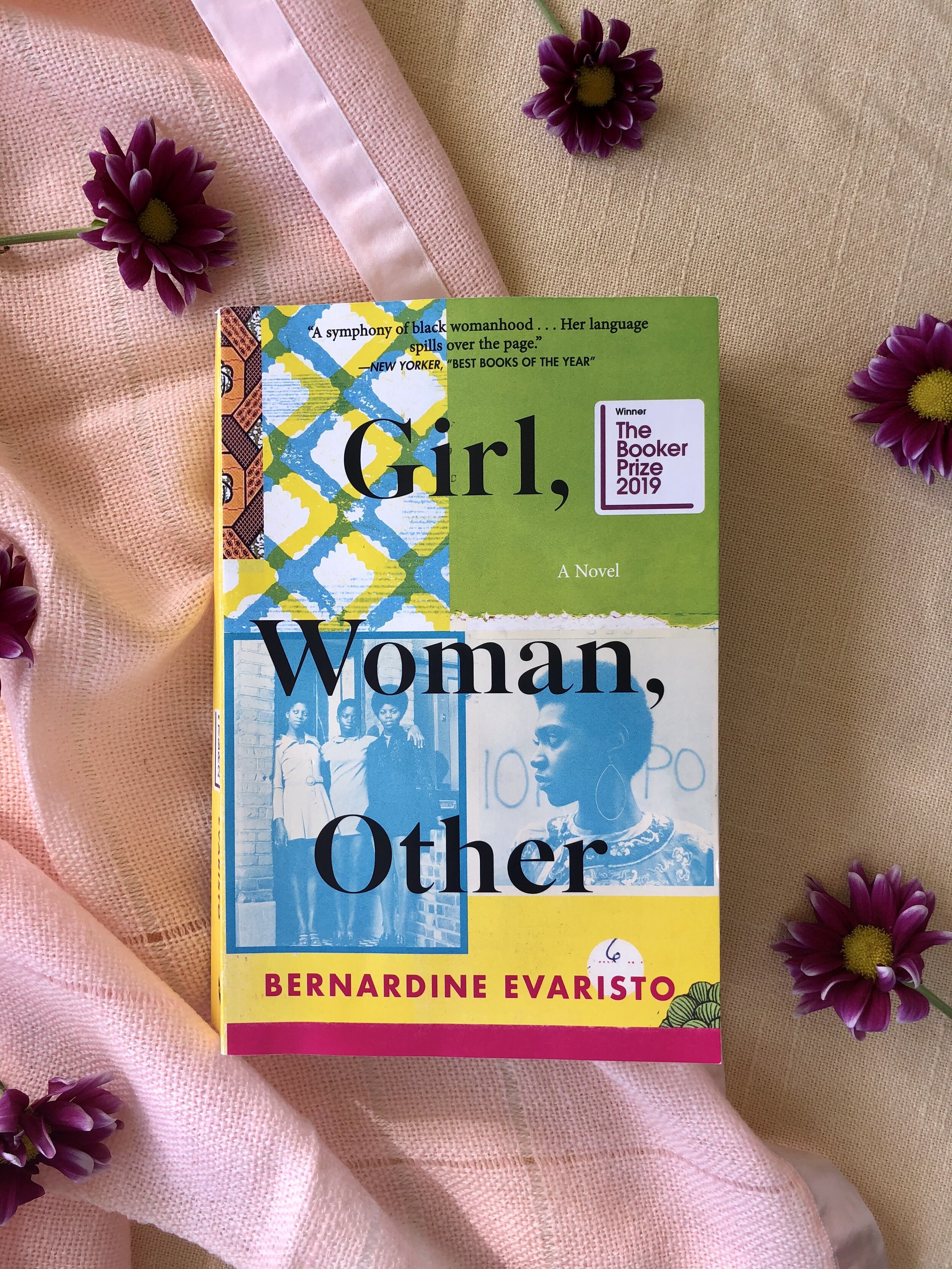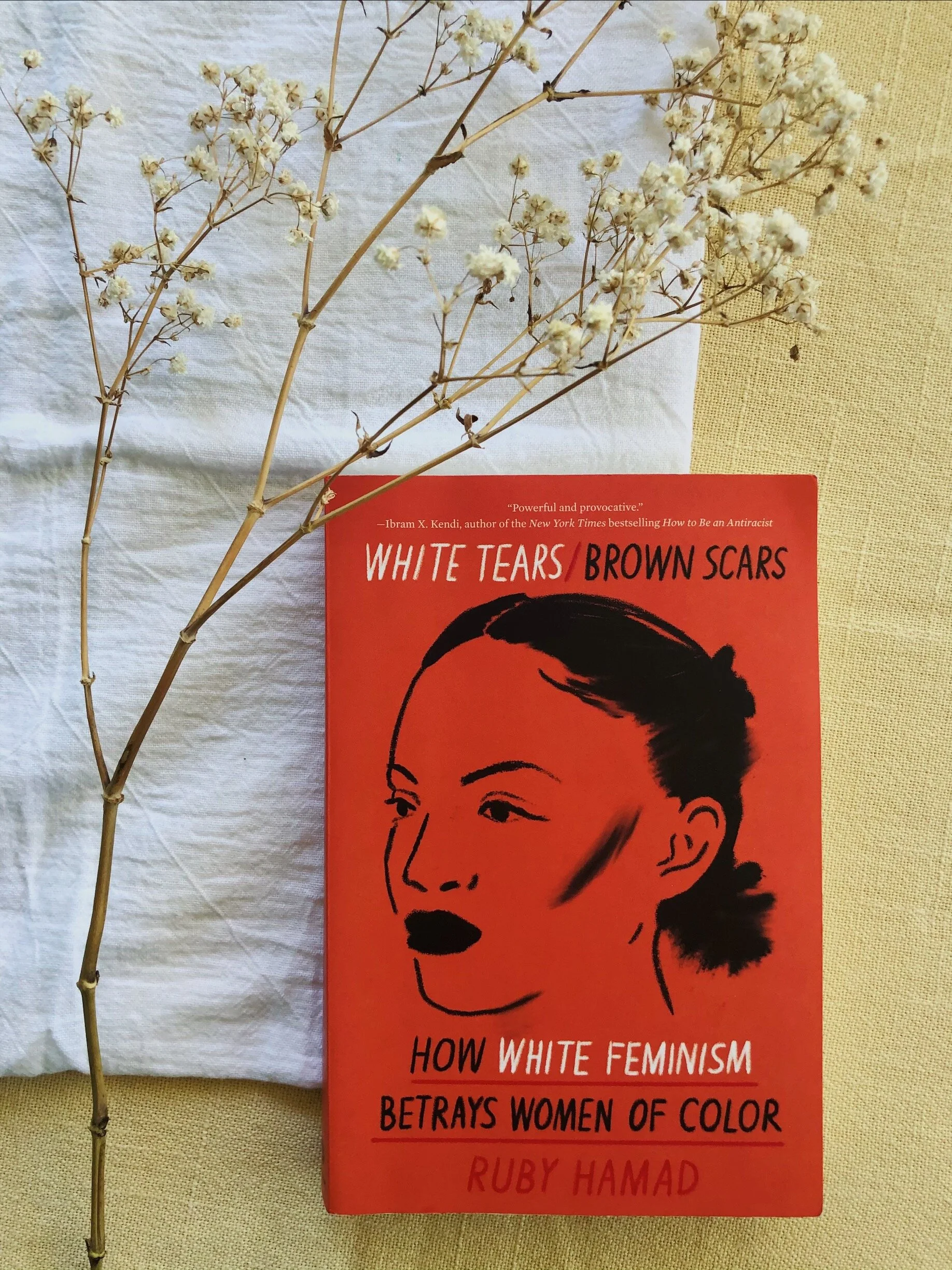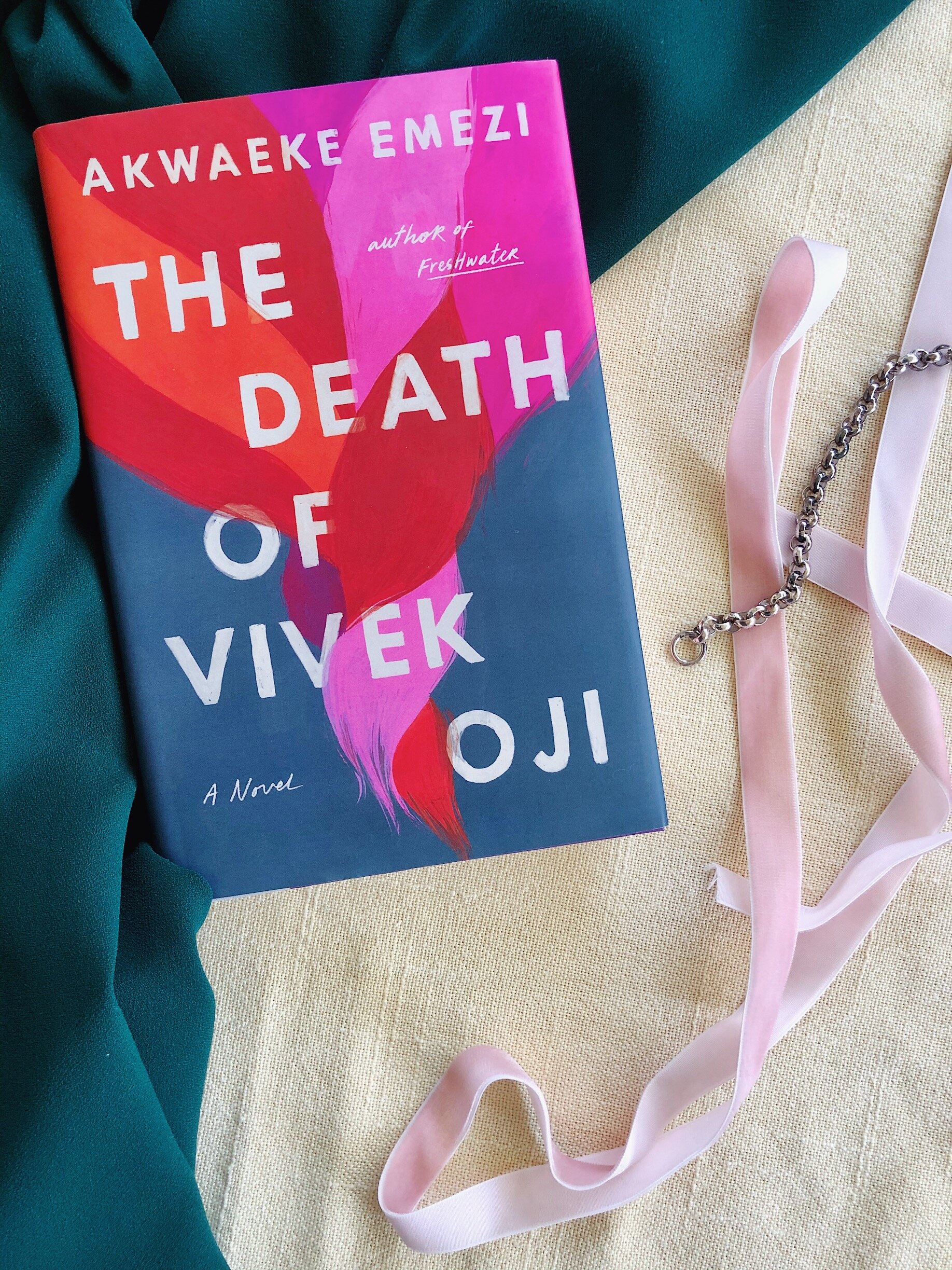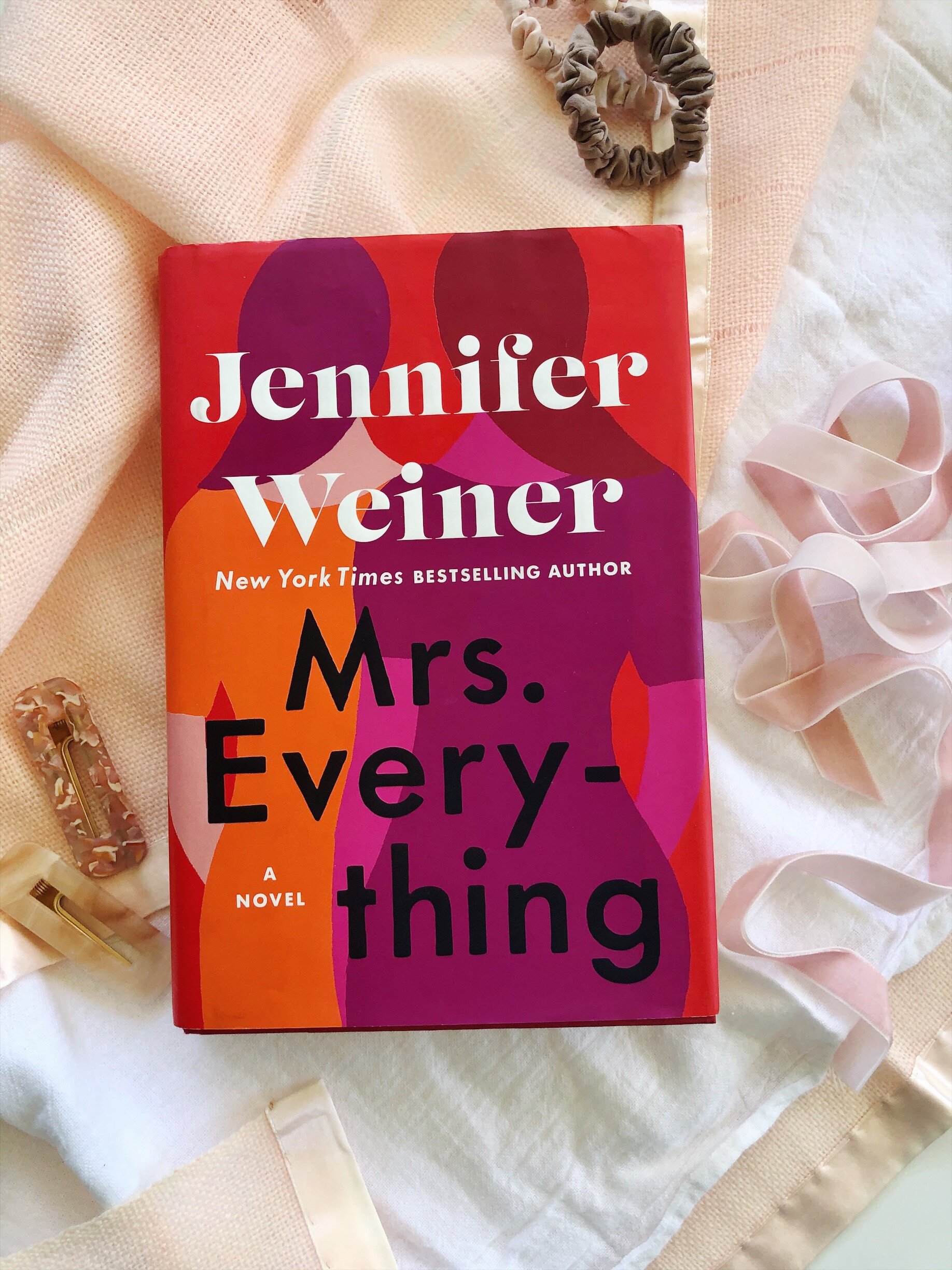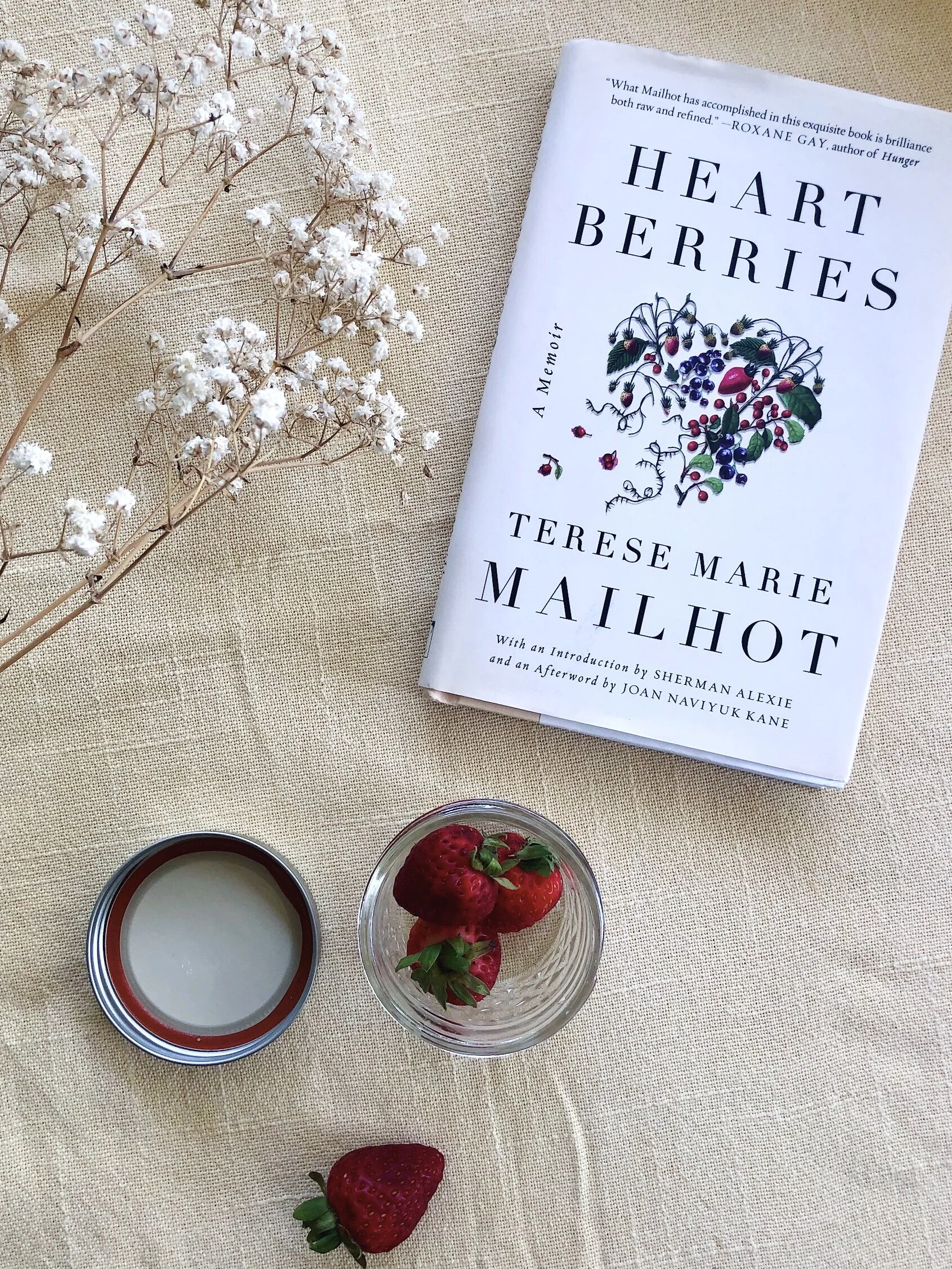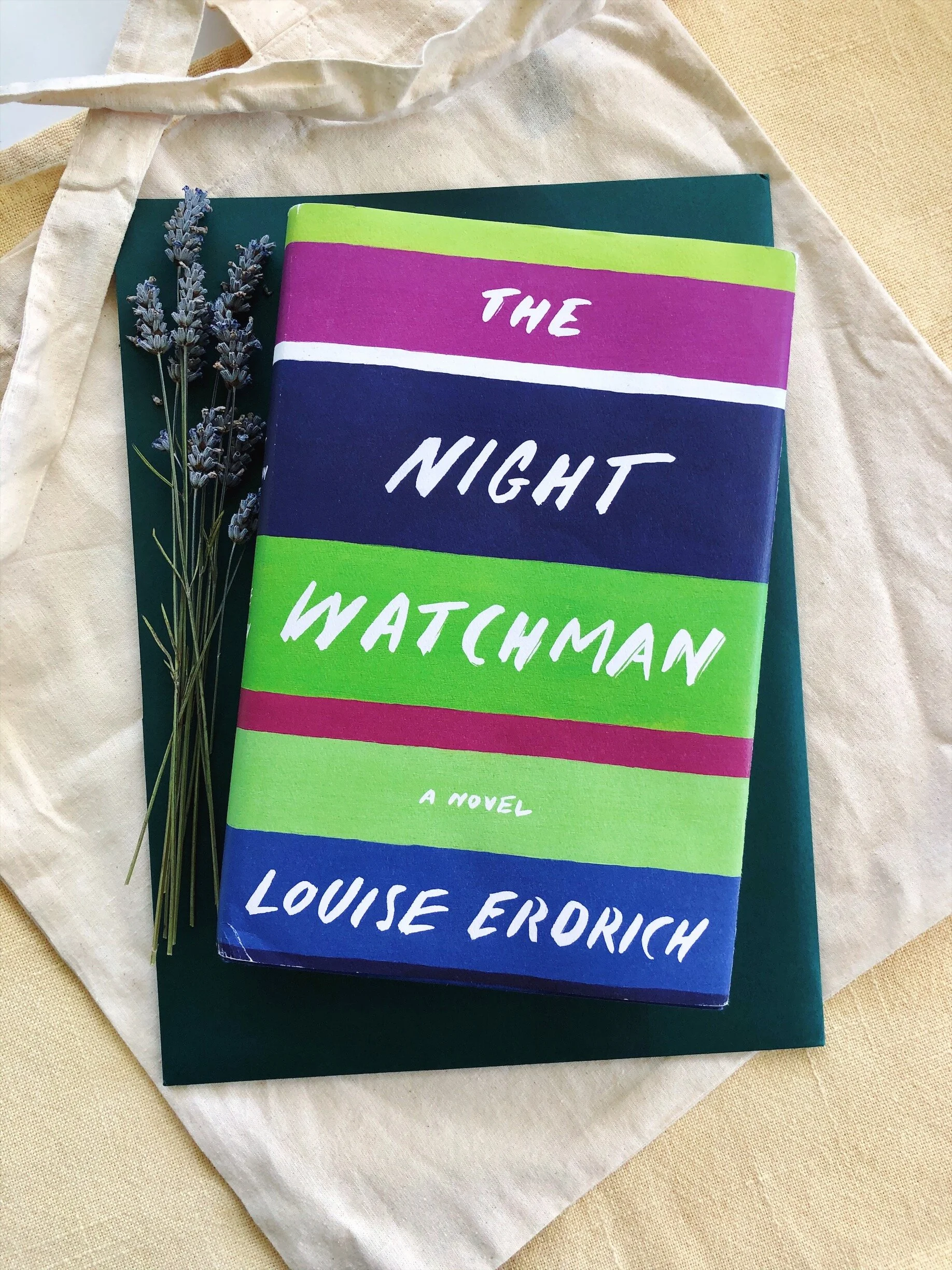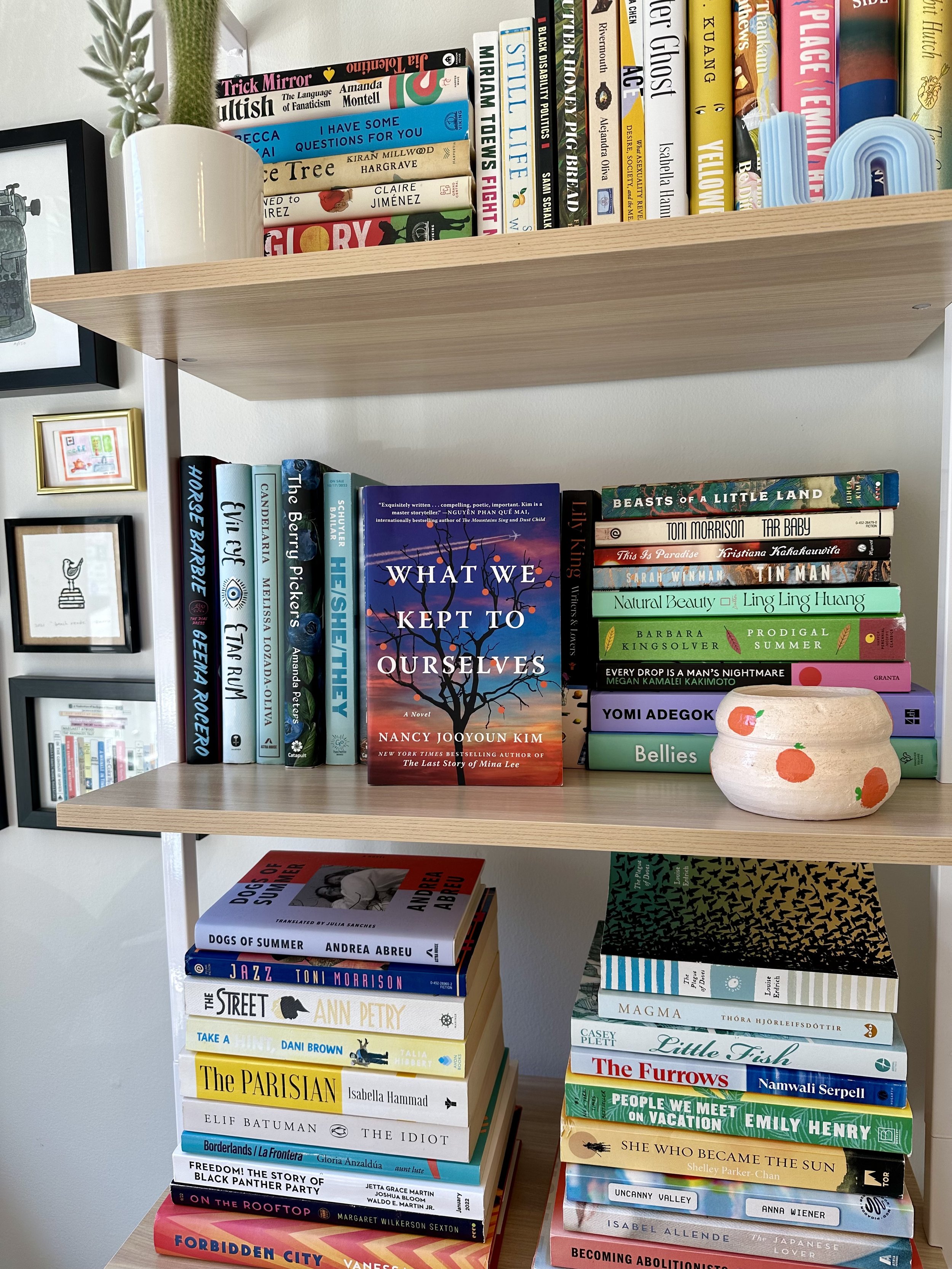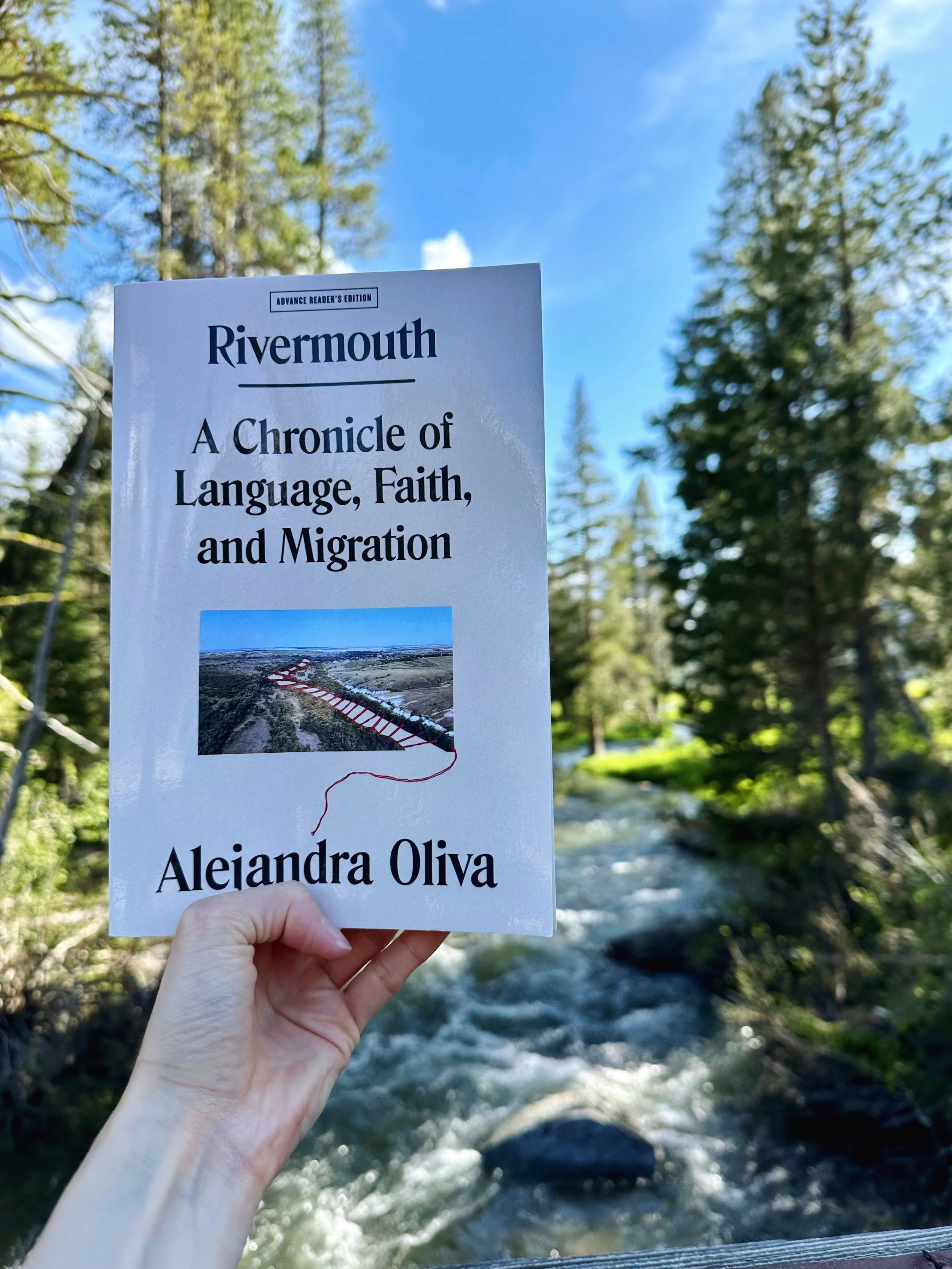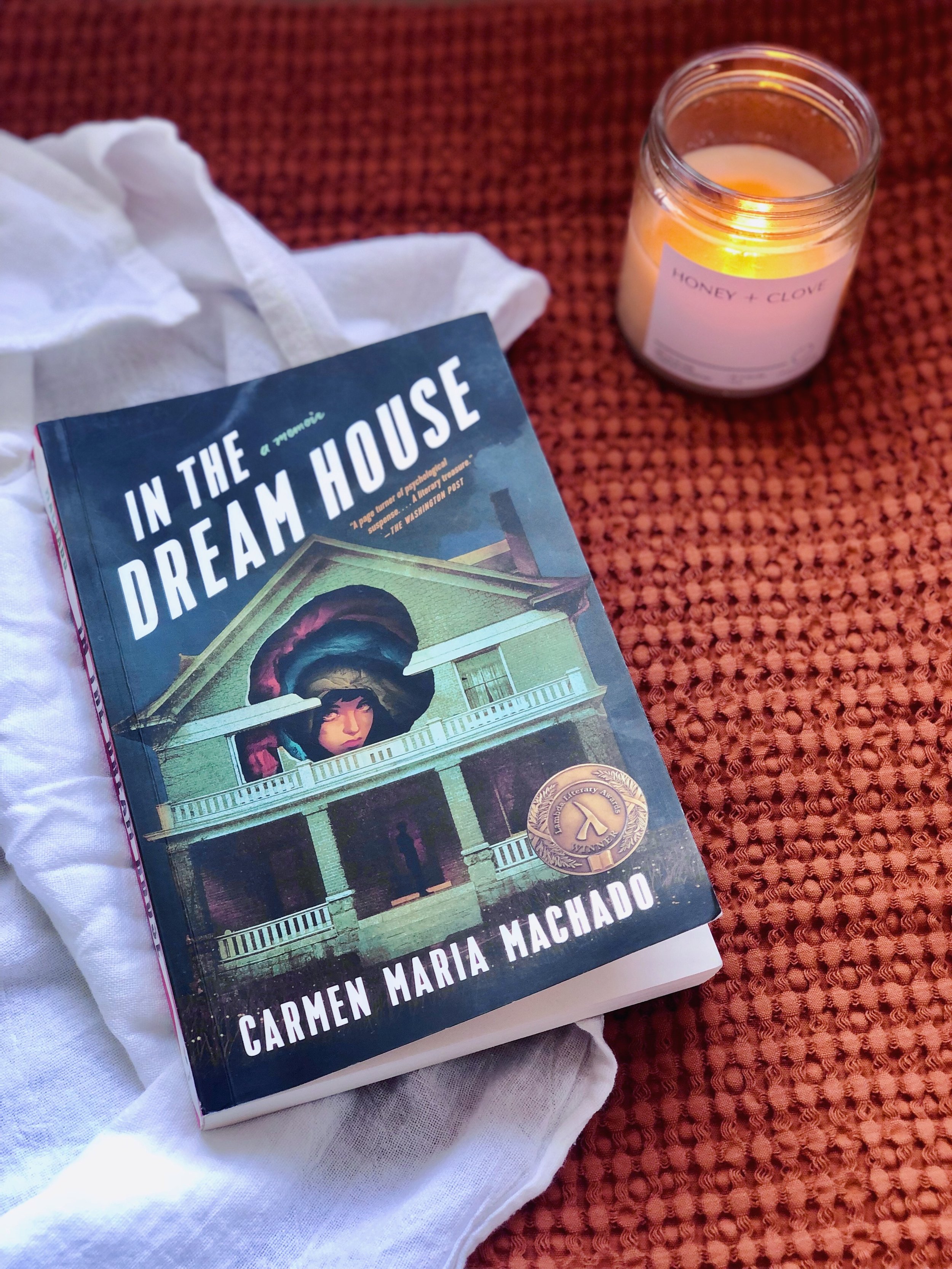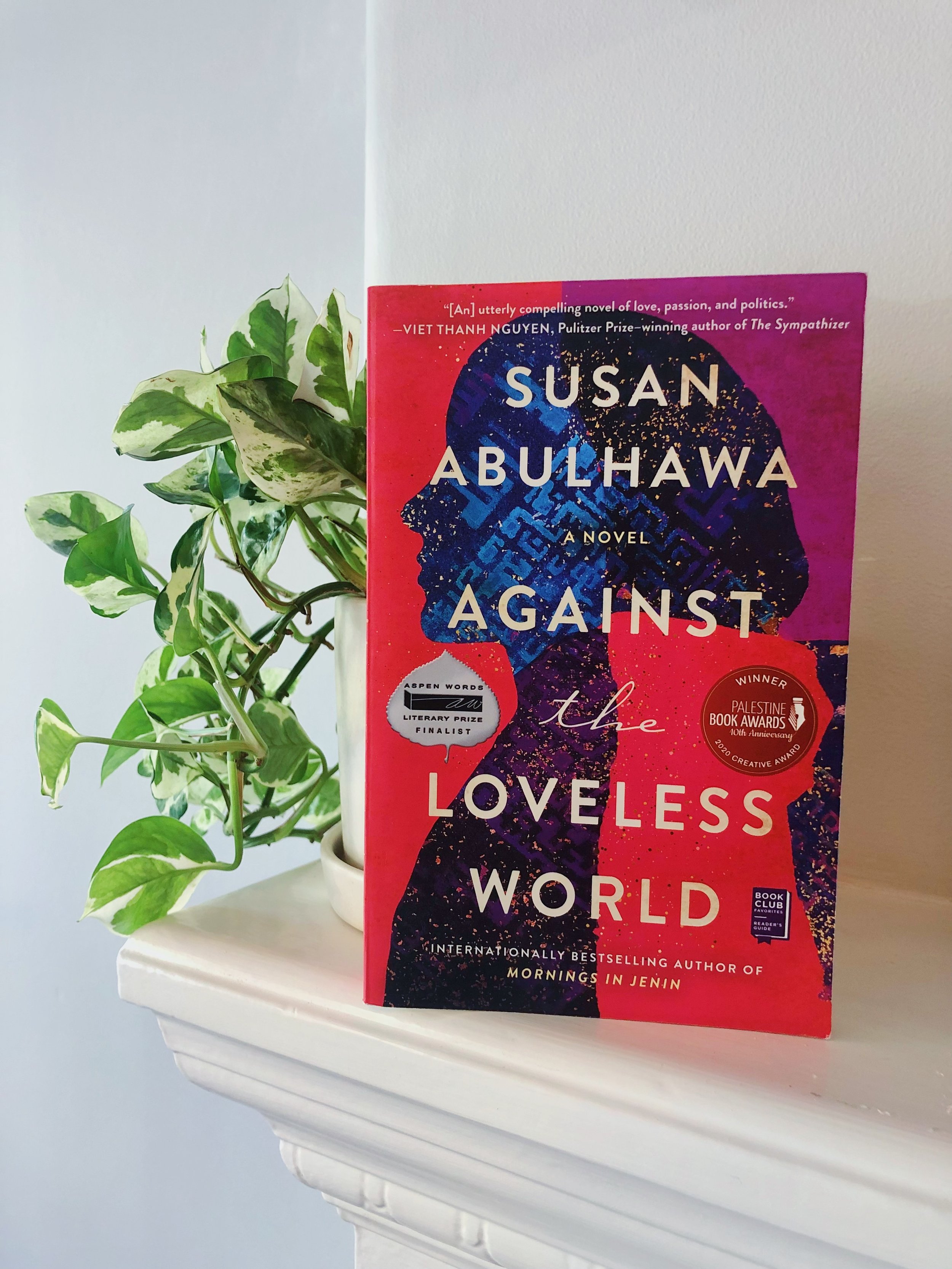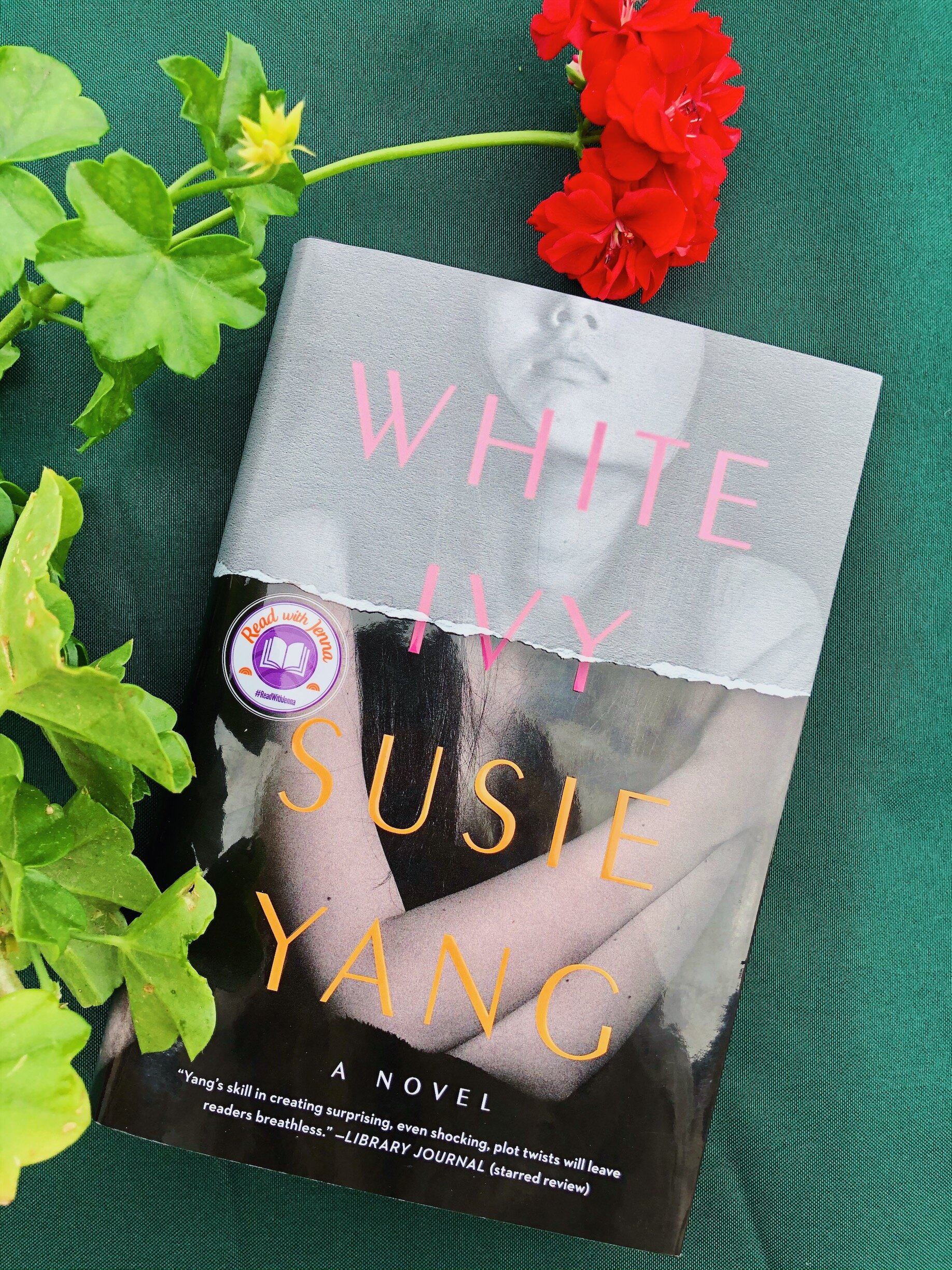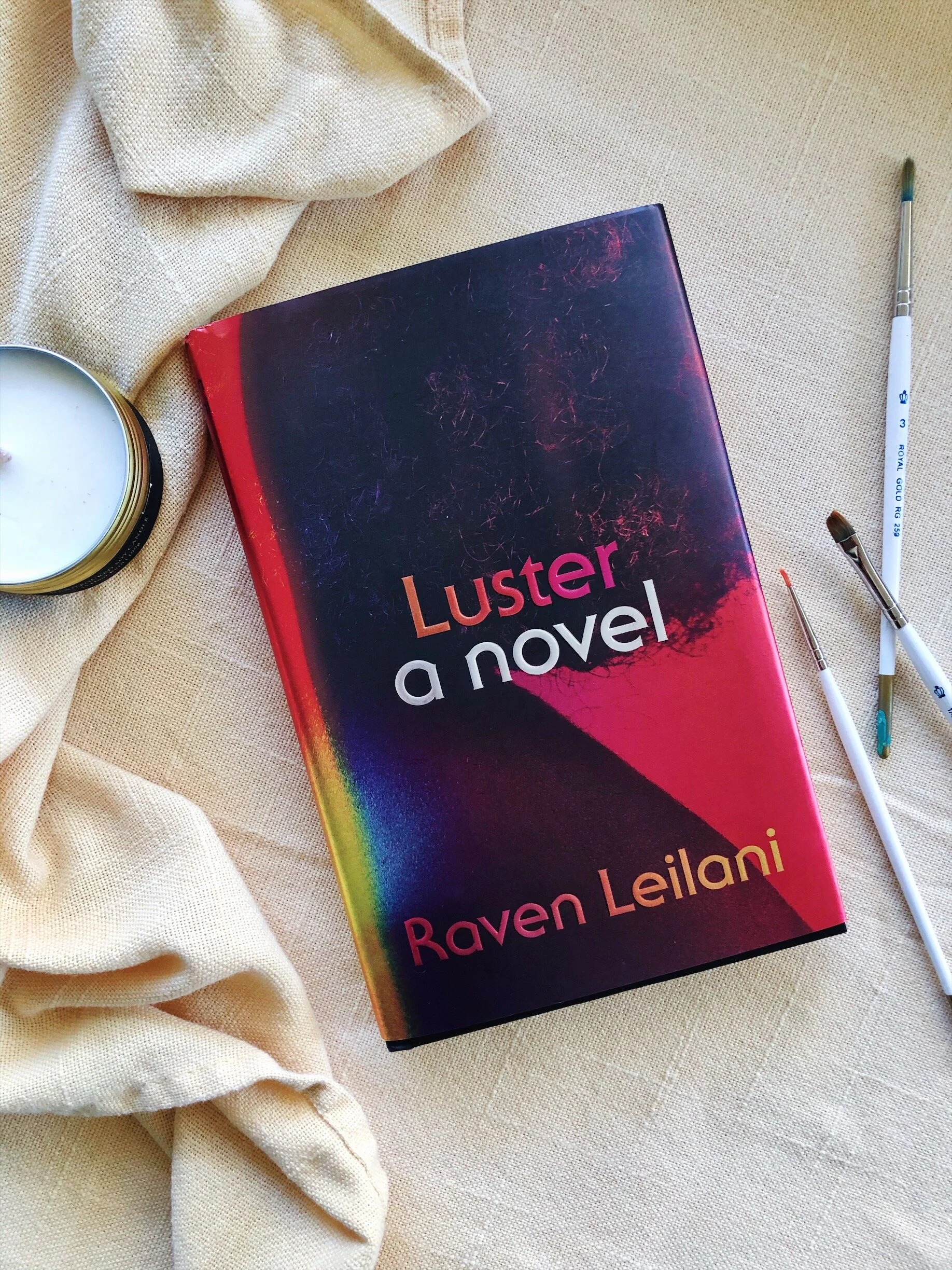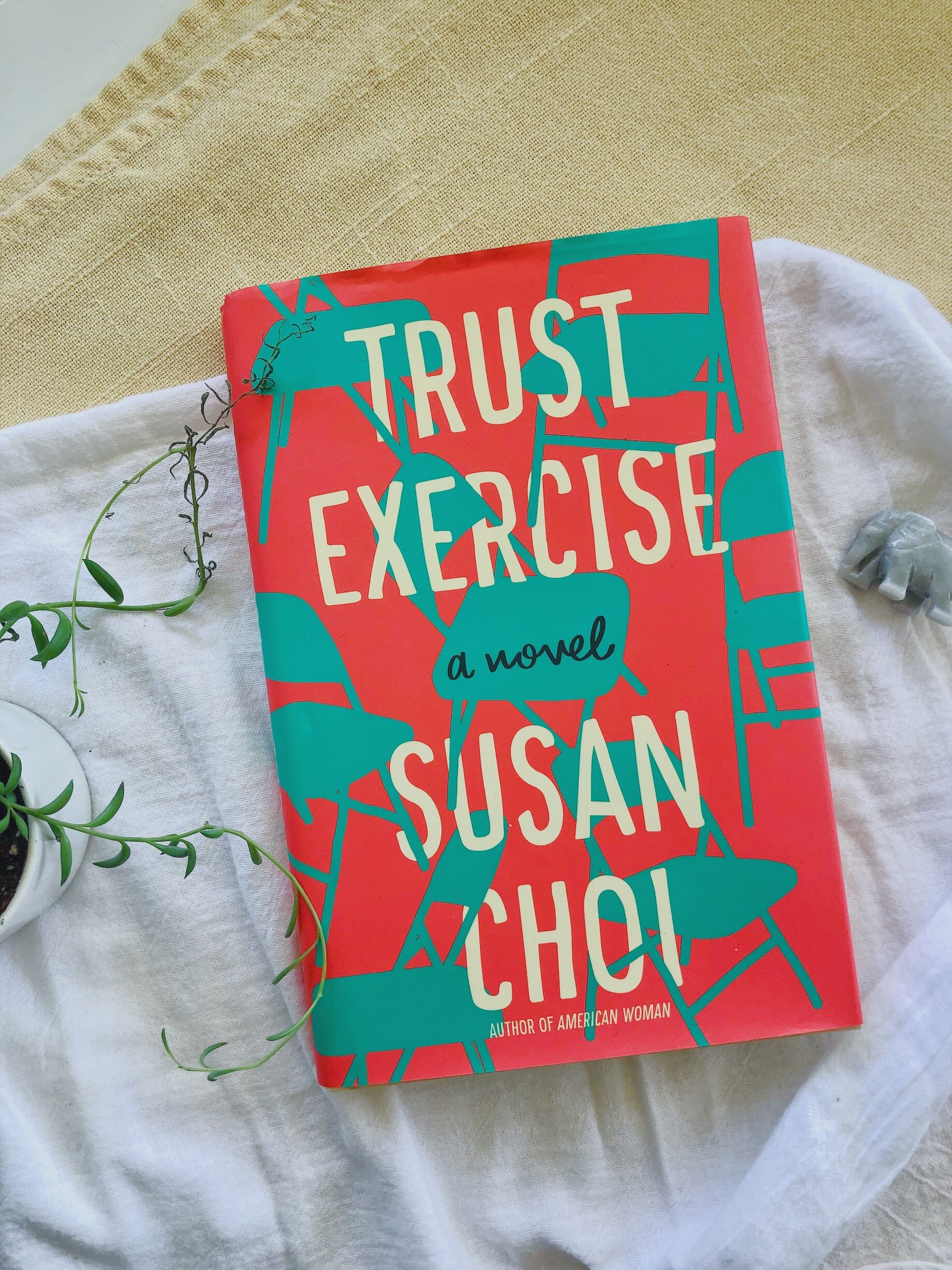Conversations
Here, you’ll find explorations of books through an intersectional lens. Rather than reviews, these are meant to inspire conversation. Each one begins with a quick summary of the title and then merges into thoughts and questions. We encourage you to read, respond, and share your thoughts, creating a conversation within the community.
Search by title, key word, genre or author or scroll through the full list below.
Black, Brown, Indigenous, Asian Voices
Immigration
LGBTQIA2S+ Characters
Confronting Gender Roles
Addressing Marriage
Historical Stories
Family Stories
Discussing Religion
On Mental Health
Not sure what you’re looking for?
Scroll through all of our conversation pieces, along with additional information on the titles, below.
What We Kept to Ourselves
Author: Nancy Jooyoun Kim
Synopsis: Nancy Jooyoun Kim
Who should read this book: Fans of Hala Alyan and Chelsea Bieker’s Madwoman
What we’re thinking about: Art as a medium for engaging with and creating change
Trigger warning(s): Racism, police violence, addiction, homelessness, abortion, loss of a parent (see all)
Silken Gazelles
Author: Jokha Alharthi
Synopsis: In Jokha Alharthi’s latest novel to be translated into English, Silken Gazelles, platonic relationships between women are prioritized by the writer, even if not by all the protagonists. The result is a story that challenges societal notions and preferences of love, one that displays fully why these relationships deserve just as much—if not more—attention and affection as romantic ones.
Who should read this book: Fans of Enter Ghost and Celestial Bodies
What we’re thinking about: The significance and necessity of platonic love
Trigger warning(s): Miscarriage, death of a parent and child, depression, substance abuse, sexism
Doppelganger
Author: Naomi Klein
Synopsis: “There is one thing that we must never surrender, and that is the language of anti-facism. The true meanings of ‘genocide’ and ‘apartheid’ and ‘Holocaust,’ and the supremacist mindset that makes them all possible,” writes Naomi Klein in her book Doppelganger: A Trip into the Mirror World. Published less than a month before the ongoing attack in Gaza began, Klein has been a staunch advocate for labeling the events as what they are: a genocide. Why such an emphasis on language?
Who should read this book: Fans of Rivermouth and The Sentence
What we’re thinking about: Gray areas and not-so-gray areas
Trigger warning(s): White supremacy, genocide, racism, antisemitism (see all here)
Minor Detail
Author: Adania Shibli
Synopsis: When reading Minor Detail, Adania Shibli’s award-winning novella, translated from the Arabic by Elisabeth Jaquette, readers see laid bare the ongoing, systemic, and generational brutality of the Israeli government against Palestinians. Minor details weave the book’s two parts together, showcasing how despite the attempt to erase history, to erase the Israeli government’s current violence against Palestinians, the world can’t.
Who should read this book: Fans of Enter Ghost and Celestial Bodies
What we’re thinking about: Minor details that make a complete picture
Trigger warning(s): Sexual assault, physical violence (gun violence), colonization, genocide, Islamophobia, racism, sexism (see more)
The Storm We Made
Author: Vanessa Chan
Synopsis: Taking place in Malaya just before and during World War II, The Storm We Made depicts life under British and Japanese occupation, showing how trauma generationally imprints itself on and within bodies, not just because of violence enacted upon individuals, but also from their subsequent urge for control, and the desire to protect those they love.
Who should read this book: Fans of The Nightwatchman and Minor Feelings
What we’re thinking about: Hidden histories
Trigger warning(s): Physical violence, sexual violence, sexism, mental health, colorism, racism (see more)
Enter Ghost
Author: Isabella Hammad
Synopsis: Enter Ghost, Isabella Hammad’s second novel, uses Hamlet as a vehicle to explore protagonist Sonia’s identity as a thirty-something-year-old, diasporic Palestinian woman. Ultimately, Enter Ghost confronts ghosts, but not of deceased individuals; rather, societal, cultural, and historical.
Who should read this book: Fans of The End of August
What we’re thinking about: Art as a vehicle of resistance
Trigger warning(s): Racism, Islamophobia, miscarriage, police brutality (see more)
The End of August
Author: Yu Miri
Synopsis: The End of August spans decades, beginning with the Japanese occupation of Korea, and navigating through World War II, the Korean War, and South Korea’s anti-communist uprising. And through the novel’s entirety—which alternates between prose, poetry, song lyrics, play dialogue, and streams of consciousness—is a battle cry for Korean culture and history.
Who should read this book: Fans of The Night Watchman and The House of the Spirits
What we’re thinking about: The power of translating—and not translating
Trigger warning(s): Abuse, substance abuse, racism, classism, sexism, sexual assault (see more)
The Berry Pickers
Author: Amanda Peters
Synopsis: The Berry Pickers brings to the forefront an issue not just overlooked and dismissed by individuals and politicians in the U.S.—MMIWG2S—but also the historical whitewashing of Indigenous identity. It’s a story of familial and cultural loss, preservation, and belief.
Who should read this book: Fans of The Vanishing Half and Sankofa
What we’re thinking about: The passing down of culture and identity
Trigger warning(s): Abuse, substance abuse, racism, miscarriage, death of a parent (see more)
Every Drop Is a Man’s Nightmare
Author: Megan Kamalei Kakimoto
Synopsis: In Every Drop Is a Man’s Nightmare, we follow women at varying stages of life through relationships with their families, selves and bodies, careers, homes, and romantic interests. All through, threads of patriarchy—especially in its need for conquest, whether that be bodily or territorial—and the women’s intense desire to escape in their own way bind the women together.
Who should read this book: Fans of Self Portrait With Ghost and Brother, Sister, Mother, Explorer
What we’re thinking about: The patriarchal assumptions put on women’s bodies
Trigger warning(s): Sexism, abuse, racism, substance abuse, classism, fatphobia
Family Lore
Author: Elizabeth Acevedo
Synopsis: In Family Lore, Acevedo’s first novel for adults, we follow the Marte women, four sisters and two of their daughters. Through recounts of the sisters’ childhood in the Dominican Republic and eventual immigration to New York, as well as their present day relationships with one another, life, and their selves, we see the women at their fullest.
Who should read this book: Fans of Bad Fruit and Of Women and Salt
What we’re thinking about: The complexity of understanding who we are and how we’ve been shaped by our family
Trigger warning(s): Sexism, abuse, colorism, classism, sexual assault, substance abuse (see more)
Another Brooklyn
Author: Jaqueline Woodson
Synopsis: Another Brooklyn is a meditation on girlhood, its ups and downs, the beauty of adolescence and the terror of growth. In under 200 pages, Woodson paints a vibrant, pulsing story of girls intrinsically wound together, yet torturously alone because of societal constructs, expectations, and restrictions.
Who should read this book: Fans of The Bluest Eye and Godshot
What we’re thinking about: Memory as past and present
Trigger warning(s): Racism, sexism, suicide, substance abuse, death of a parent (off screen)
Horse Barbie: A Memoir
Author: Geena Rocero
Synopsis: Geena Rocero knows intimately the importance of visibility, as she details in her memoir Horse Barbie, but knows the other side just as well: tokenization and its erasure of identity. Horse Barbie is Rocero’s story: one of trans joy, exhaustion, love, empowerment, and more. And at its core, Horse Barbie demonstrates the need for story—and language—beyond the purpose of visibility; rather, as a call to action.
Who should read this book: Fans of The Man Who Could Move Clouds and Minor Feelings
What we’re thinking about: Language and its power, both as oppressor and revolution
Trigger warning(s): Racism, colorism, sexism, homophobia, transphobia, physical violence (off screen), abortion (off screen)
Rivermouth: A Chronicle of Language, Faith, and Migration
Author: Alejandra Oliva
Synopsis: Translation benefits society, such as by enabling intimate conversations or spreading stories and art from around the world. But what about when translation is wielded as a tool for power, the recipient manipulating the meaning behind a passage or verbal statement to uphold ingrained beliefs or political goals? In Rivermouth, author and translator Alejandra Oliva addresses this and more. Translation is not simply about communication; in our modern world, it’s a political weapon, a personal history, and a call to action.
Who should read this book: Fans of The Man Who Could Move Clouds and The Sex Lives of African Women
What we’re thinking about: The connection between translation and growth, whether personal, societal, or political
Trigger warning(s): Incarceration, off-screen physical violence, racism, sexism, classism, xenophobia, and homophobia
The Dance Tree
Author: Kiran Millwood Hargrave
Synopsis: In 1518 Strasbourg, a group of up to four hundred people, mainly women, danced for two months in a frenzied state. Using this historical setting, Kiran Millwood Hargrave’s The Dance Tree not only reflects on how any action going beyond white, patriarchal control has been erased or vilified in our textbooks, but also showcases modern day inequities that are far too similar to those found in the 16th century.
Who should read this book: Fans of The Seven or Eight Deaths of Stella Fortuna and Like a Bird
What we’re thinking about: What stories are erased from our history textbooks
Trigger warning(s): Physical violence, sexism, racism, classism, homophobia, xenophobia, miscarriage
The Bandit Queens
Author: Parini Shroff
Synopsis: In Parini Shroff’s The Bandit Queens, a group of women decide to determine justice—its definition, victims, and consequences—in their small community. Balanced with satire and dark humor, the novel critiques society’s corrupt justice system which ultimately continues to benefit those in power.
Who should read this book: Fans of Olga Dies Dreaming and Detransition, Baby
What we’re thinking about: Satire as a way to address (and in a way combat) critical societal issues
Trigger warning(s): Physical violence, sexual violence, substance abuse, sexism, classism, fatphobia, homophobia, murder
I Have Some Questions for You
Author: Rebecca Makkai
Synopsis: In I Have Some Questions for You, Rebecca Makkai delves into society’s true crime obsession, but to confront and break down the stereotypes and harmful consequences that the genre tends to play into. In doing so, the story addresses a number of critical topics with purpose, highlighting just how deep and interconnected our society’s structural issues are.
Who should read this book: Fans of Notes on a Silencing and The Incendiaries
What we’re thinking about: Which stories are told and who tells them
Trigger warning(s): Physical violence, sexual violence, substance abuse, eating disorders, sexism, mental health, racism, fatphobia, murder
Bad Fruit
Author: Ella King
Synopsis: Lily strives to determine a sense of self the summer before college despite attempts by her parents and siblings to define her. In Bad Fruit, Ella King explores generational trauma, specifically the normalization of violence in families, but without the idolization all too common in today’s media; Rather, she shows there is a way out.
Who should read this book: Fans of Chelsea Bieker’s Godshsot and Heartbroke
What we’re thinking about: Society’s upholdment and furthering of generational trauma
Trigger warning(s): Physical violence, sexual violence, substance abuse, eating disorders, sexism, mental health, racism, abandonment, fatphobia, self-harm, xenophobia
The Man Who Could Move Clouds
Author: Ingrid Rojas Contreras
Synopsis: The theme of buried memories is integral to The Man Who Could Move Clouds, as Rojas Contreras reflects on her personal history of medical amnesia alongside the forced identity loss that comes with westernization, colonization, and assimilation. Through her writing, Rojas Contreras brings her personal and familial truth to light, forcing readers to reevaluate what we have been taught to be reality, to be history.
Who should read this book: Fans of The Fruit of the Drunken Tree and Brother, Sister, Mother, Explorer
What we’re thinking about: The power books possess to reclaim history.
Trigger warning(s): Physical violence, sexual violence, substance abuse, eating disorders, sexism, mental health, racism
Olga Dies Dreaming
Author: Xochitl Gonzalez
Synopsis: In the weeks leading up to and in the aftermath of Hurricane Maria, Olga and her brother Prieto navigate the long-lasting impact of colonialism on their Puerto Rican family and heritage while living in gentrifying New York City, an impact that the hurricane only emphasizes. The novel presents the legacy of colonialism and its white supremacist roots through the eyes of a historical event that does not feel so historical—especially when the U.S. government has taken no real action in the past few years to create change. In doing so, it sheds a light on the damaging impact of white supremacy at every scale.
Who should read this book: Fans of The Sentence
What we’re thinking about: The present day resonance of this story amidst the aftermath of Hurricane Fiona.
Trigger warning(s): Physical violence, sexual violence, abandonment, racism, sexism, homophobia
Self-Portrait with Ghost
Author: Meng Jin
Synopsis: In Meng Jin’s Self-Portrait with Ghost, women are the focus. As the author does in Little Gods, she pays no attention to westernized bounds of reality, rather bending, building, and bearing science to emphasize the impact of everything from technology to art to the pandemic to colonization to white supremacy to politics on bodily autonomy. For a story collection written during the Trump administration and the COVID-19 pandemic, the approach is not just timely, but impactful, laying the structural issues of our society starkly bare.
Who should read this book: Fans of Little Gods and Heartbroke
What we’re thinking about: What does it mean in the twenty-first century to be “complete?”
Trigger warning(s): Physical violence, sexual violence, self-harm, suicide, racism, sexism
Heartbroke
Author: Chelsea Bieker
Synopsis: “A mother doesn’t forget her babies, no she don’t,” writes a mother in an unsent letter to her son in Heartbroke’s namesake story In Bieker’s second book, this time a story collection, motherhood and longing are once again at the forefront. But while Godshot focuses on the world of Lacey May, Heartbroke is full of characters. Uniting them all is the haunting of motherhood, one that stems from mothers being people in their own right, with their own desires and emotions, and one that causes the children to reap the consequences.
Who should read this book: Fans of Of Women and Salt and Brother, Sister, Mother, Explorer
What we’re thinking about: The state of reproductive justice in our country
Trigger warning(s): Physical violence, sexual violence, substance abuse, self-harm, abandonment, sexism
The Sentence
Author: Louise Erdrich
Synopsis: The Sentence is a story of language. It’s a story about trying to find the right language—sometimes the perfect language—to convey how one feels, but oftentimes not being able to translate emotions. About lost and dying languages and the fight to preserve them in the face of white supremacy. It’s a story about building sentences and the books that contain them. And at its heart, The Sentence is a story of an Indigenous-owned bookstore, the place that houses the words, and the world through its keepers’ eyes.
Who should read this book: Anyone who loves the magic of books
What we’re thinking about: The preservation of language
Trigger warning(s): Physical violence, colonialism, mental health (note: There are off-screen discussions to George Floyd’s murder and the story takes place during the COVID-19 pandemic)
The Sex Lives of African Women
Author: Nana Darkoa Sekyiamah
Synopsis: The Sex Lives of African Women by Nana Darkoa Sekyiamah is a book that demonstrates the exact importance of sex education—and the importance of it being intersectional, inclusive, and, to put it simply, truthful. But even more so, it’s a document of stories too often overlooked and cast aside because of the discrimination against women of color and LGBTQIA+ people, particularly those in non western societies.
Who should read this book: Everyone
What we’re thinking about: The diversity of sex and sexuality
Trigger warning(s): Physical violence, sexual violence, abortion, sexism, mental health, racism, transphobia, homophobia, Islamophobia, fatphobia, ableism, xenophobia
In the Dream House
Author: Carmen Maria Machado
Synopsis: “A house is never apolitical,” Carmen Maria Machado writes in her memoir In the Dream House. “It is conceived, constructed, occupied, and policed by people with power, needs, and fears.” Such policing aims to erase history by way of whitewashed (and straight-washed, ableist-washed, xenophobic-washed, etc.) narratives. And so, Machado constructs her own house, building one that subverts white supremacist norms and becomes political in its own way.
Who should read this book: Fans of Minor Feelings, Long Live the Tribe of Fatherless Girls, and Notes on a Silencing
What we’re thinking about: How writing has the power to rebuild—and reshape—what we know as “history.”
Trigger warning(s): Physical violence, sexual violence, slurs, sexism, mental health, racism, homophobia, fatphobia
Against the Loveless World
Author: Susan Abulhawa
Synopsis: Against the Loveless World follows Nahr, a Palestinian woman in an Israeli solitary-confinement cell she dubs “The Cube.” As she details the events leading up to her confinement, it becomes clear that her story goes against the narrative that real-life western media overly promotes, painting a blunt picture of the atrocities committed by the Israeli government and citizens in acts of settler-colonial oppression.
Who should read this book: Fans of Of Women and Salt and Brother, Sister, Mother, Explorer
What we’re thinking about: What compels individuals—especially those that history has tried to erase—to write
Trigger warning(s): Physical violence, sexual violence, abortion, sexism, racism, miscarriage, colonialism
Like A Bird
Author: Fariha Róisín
Synopsis: In Like A Bird, we follow Taylia, a young American of Indian and Jewish ancestry, as she navigates life after experiencing multiple traumas. Yet, while Róisín writes about these moments, they are not the focus. Róisín shows that “survivor” is not a label to slap onto individuals out of petty or without consent, as not everyone wants to be considered as such. Nor is being a “survivor” one-dimensional. Rather, it can exist in tandem with resilience, prosperity, and growth.
Who should read this book: Fans of You Exist Too Much and Know My Name
What we’re thinking about: The strength of chosen families
Trigger warning(s): Sexual violence, substance abuse, self-harm, abandonment, sexism, mental health
Seven Days in June
Author: Tia Williams
Synopsis: Seven Days in June centers three important, interwoven conversations: the dismissal of chronic illnesses, the problematic assumptions people possess about disabilities, and Black joy.
Who Should Read this Book: Everyone
What We’re Thinking About: Those romance scenes (*swoon*)
Trigger Warning(s): Physical violence, substance abuse, self-harm, abandonment, mental health, racism
Minor Feelings
Author: Cathy Park Hong
Synopsis: In a society shaped by white supremacist standards, values, and beliefs, how does one write for the self, and not for what people expect? Can they ever be separated? And how does one escape the publishing industry’s perpetuation of such stereotypes? In Minor Feelings: An Asian American Reckoning, author Cathy Park Hong explores this question through storylines that center her relationships with various women, including with herself.
Who should read this book: Fans of Love is an Ex-Country and Heart Berries
What we’re thinking about: How can we, as readers, continue to challenge the publishing industry to decolonize its practices?
Trigger warning(s): Physical violence, sexual violence, substance abuse, eating disorders, self-harm, slurs, sexism, mental health, racism, fatphobia, ableism
Of Women and Salt
Author: Gabriela Garcia
Synopsis: In Gabriela Garcia’s Of Women and Salt, Garcia explores how multiple truths and identities can exist concurrently, particularly for immigrant women of color living within a society that enforces white supremacist values and beliefs. Ultimately, she paints a portrait of women and survival—how the fight to build a life for oneself in such a society is not one-size-fits-all, nor as simple as “good” versus “bad.” Rather, such individuals must do whatever it takes to exist, whether that means assimilation into, rebellion against, and/or manipulation of white culture.
Who should read this book: Fans of Isabel Allende or The Seven or Eight Deaths of Stella Fortuna
What we’re thinking about: The “more” in certain women
Trigger warning(s): Physical violence, sexual violence, substance abuse, eating disorders, self-harm, slurs, sexism, mental health, racism, xenophobia
Against White Feminism
Author: Rafia Zakaria
Aynopsis: In Rafia Zakaria’s Against White Feminism, Zakaria takes a critical look at western, foreign intervention made on the promise of “liberation.” Specifically, she hones in on the constructed “Middle East,” analyzing real-life interventions, pop culture references, social events, and more. In doing so, she demonstrates how what the U.S. has done and continues to do to “save” women abroad does not benefit anyone other than white supremacy—especially when under the false pretenses of feminism.
Who should read this book: Everyone
What we’re thinking about: The western trend to determine what issue is and isn’t “convenient”
Trigger warning(s): Physical violence, sexual violence, self-harm, slurs, sexism, mental health, racism, transphobia, homophobia, Islamophobia, ableism
Disability Visibility
Author: edited by Alice Wong
Synopsis: Disability Visibility combats erasure, a compilation of essays by individuals with a range of disabilities (visible and invisible) that seeks to do exactly what the title suggests: make these identities visible and make readers acknowledge and advocate for that visibility. The collection adds almost 40 new stories to the canon, giving a platform that includes disability activists, designers, and writers who are trans, queer, Black, Indigenous, Asian, and more. It is, at its core, an intersectional read to a powerful degree.
Who should read this book: Everyone
What we’re thinking about: Internalized ableism and how it permeates society
Trigger warning(s): Physical violence, sexual violence, slurs, abortion, sexism, mental health, racism, transphobia, fatphobia, ableism
How the One-Armed Sister Sweeps Her House
Author: Cherie Jones
Synopsis: In Cherie Jones’s debut novel How the One-Armed Sister Sweeps Her House, Jones lays bare the impact structural inequalities have–and don’t have—on different people, whether that be because of their gender, race, and/or class. By crafting a narrative that centers on Lala, a mother in an abusive relationship, and using it to subtly amplify lessons scholars have been teaching for decades, Jones makes clear that structural racism cannot fully be combatted until those institutions are rebuilt to enable safety and support for everyone.
Who should read this book: Fans of Brother, Sister, Mother, Explorer and Celestial Bodies
What we’re thinking about: The systems in place that are meant to protect, but really oppress
Trigger warning(s): Physical violence, sexual violence, sexism
Long Live the Tribe of Fatherless Girls
Author: T Kira Madden
Synopsis: While the story does focus on how Madden’s relationship with her father influences who she becomes, the story predominantly turns into one about how Madden is not defined by her fatherlessness, rather by those that were there for her (which does include both her father at times, and even herself). Ultimately, this focus allows the exploration of Madden’s development as a queer, biracial woman in an oppressive society.
Who should read this book: Fans of You Exist Too Much and Luster
What we’re thinking about: What it means to be a child and what it means to be a parent
Trigger warning(s): Physical violence, sexual violence, substance abuse, eating disorders, self-harm, slurs, abortion, abandonment, sexism, racism, antisemitism
Brother, Sister, Mother, Explorer
Author: Jamie Figueroa
Synopsis: As Jamie Figueroa aptly displays in Brother, Sister, Mother, Explorer, a mother is not constrained to our society’s simplistic terminology. Running through this story that explores grief, trauma, displacement, and family, is a current of motherhood, Figueroa bending gender roles and refusing to allow her characters to be confined.
Who should read this book: Fans of Detransition, Baby and Heart Berries
What we’re thinking about: What role does maternalism play in the twenty-first century?
Trigger warning(s): Sexual violence, substance abuse, self-harm, abortion, abandonment, mental health, racism
Fairest
Author: Meredith Talusan
Synopsis: In Meredith Talusan’s memoir Fairest (Viking, 2020), Talusan lays bare the importance of intersectionality. Her* story is one of discovering and embracing identity, particularly as a disabled, trans, immigrant in the U.S. And as Talusan narrates where she experiences privilege and where she might “pass” for being white, straight, cis, abled, etc., it becomes clear that she can never exist without experiencing her identity as a whole.
Who should read this book: Fans of Love, Loss, and What We Ate and You Exist Too Much
What we’re thinking about: Where our own reading needs to expand to further encompass intersectionality
Trigger warning(s): Physical violence, abandonment, mental health, racism, transphobia, homophobia, fatphobia
Girl, Woman, Other
Author: Bernardine Evaristo
Synopsis: Girl, Woman, Other’s 12 varying perspectives each depict a different exploration of a Black woman or nonbinary individual’s identity within a white, western space, each character working to transcend or combat societal expectations. Yet all the while, the story is about these individuals, and never the society that attempts to limit them.
Who should read this book: Fans of The Night Watchman
What we’re thinking about: How experimental writing impacts our reading
Trigger warning(s): Physical violence, sexual violence, substance abuse, self-harm, slurs, abortion, abandonment, sexim, mental health, racism, transphobia, homophobia
White Tears/Brown Scars
Author: Ruby Hamad
Synopsis: With its deep dive into the impact of colonialism, imperialism, and white supremacy around the world, Ruby Hamad’s White Tears/Brown Scars: How White Feminism Betrays Women of Color (Catapult, 2020) is a much needed addition to the feminist cannon. Hamad weaves together global examples to demonstrate the negative impact of Westernization on women of color everywhere, particularly through the constructed binary between them and white women, and to call for the destruction of white feminism to end patriarchal control.
Who should read this book: Everyone
What we’re thinking about: How our history classes conveniently forgot to mention any of the examples Hamad weaves throughout the title
Trigger warning(s): Physical violence, sexual violence, slurs, sexism, racism, Islamophobia
Love is an Ex-Country
Author: Randa Jarrar
Synopsis: Framed through the concept of a cross-country road trip, Love Is an Ex-Country challenges the reader to not only see “home” as more than just a physical space, but also as that definition being one of privilege. In doing so, the memoir asks readers to understand that finding home, particularly for a queer, fat, Arab American woman, is a political act.
Who should read this book: Fans of Detransition, Baby and White Tears/Brown Scars
What we’re thinking about: How we define home and who gets to define home
Trigger warning(s): Physical violence, sexual violence, substance abuse, eating disorders, sexism, mental health, racism, homophobia, Islamophobia, fatphobia
Celestial Bodies
Author: Jokha Alharthi
Synopsis: In Jokha Alharthi’s Celestial Bodies, Omani women are brought to the forefront. Through the intergenerational stories of its women protagonists, Celestial Bodies spotlights marriage and motherhood, and the ways in which they limit and heighten both womanhood and independence.
Who should read this book: Fans of The Death of Vivek Oji, Girl, Woman, Other, and Isabel Allende
What we’re thinking about: Alharthi’s use of the natural world to depict motherhood and marriage
Trigger warning(s): Physical violence, sexual violence, eating disorders, abandonment, sexism, mental health
Detransition, Baby
Author: Torrey Peters
Synopsis: In Detransition, Baby, Torrey Peters crafts a story without giving into her readers, a story that follows three deeply human characters and prioritizes their humanity over the readers’ expectations and knowledge. And it is because of this that the story soars, allowing readers to see the characters as they are, and not through a lens of cis privilege.
Who should read this book: Fans of Godshot and You Exist Too Much
What we’re thinking about: “The comma is a knife’s edge.” - Peters on the title
Trigger warning(s): Physical violence, sexual violence, self-harm, slurs, abortion, sexism, mental health, transphobia, homophobia
His Only Wife
Author: Peace Adzo Medie
Synopsis: Peace Adzo Medie’s His Only Wife confronts westernized views, challenging readers to drop any preconceived notions of Ghanaian culture. Lauded as “A Crazy Rich Asians for West Africa” by Kirkus, the novel dives into the life of Afi Tekple, her new marriage, and her career goals, demonstrating how strength and success in women doesn’t have to be defined by western definition.
Who should read this book: Fans of Kim Ji-young, Born 1982
What we’re thinking about: The importance of books that subvert stereotypes and supposed norms
Trigger warning(s): Sexism
Notes on a Silencing
Author: Lacy Crawford
Synopsis: Detailing the story of her sexual assault and the institution that silenced her for decades after, Crawford dissects this oppression, particularly as her friends, her family, and others chose to turn away out of fear. An urgent exposé on rape in America, Notes on a Silencing tears back the curtain on institutional privilege, urging readers and society to dismantle the structures that motivate, enable, and protect such violence.
Who should read this book: Fans of Know My Name
What we’re thinking about: Institutional silencing as a form of violence
Trigger warning(s): Physical violence, sexual violence, eating disorders, self-harm, sexism, mental health
White Ivy
Author: Susie Yang
Synopsis: White Ivy is a modern day take on the traditional social climbing genre. The novel not only looks at how ambitious women are depicted in comparison to men who desire the same, but also how an immigrant rewrites the American Dream to fit her own needs, instead of conforming to the ever fictitious narrative.
Who should read this book: Fans of The Lying Life of Adults and Everything I Never Told You
What we’re thinking about: What it takes to overcome societal barriers that favor privilege
Trigger warning(s): Physical violence, eating disorders, sexism, racism
Transcendent Kingdom
Author: Yaa Gyasi
Synopsis: In Gyasi’s second novel Transcendent Kingdom, racism is the weather, as well as sexism and the subsequent expectations placed on main character Gifty due to her intersectional identity. The book addresses all of these experiences, without being about any of them. Gyasi masterfully details a story about Gifty’s reckoning of spirituality and science, in an environment created by individuals that too often would prefer her not to succeed.
Who should read this book: Fans of Godshot
What we’re thinking about: The coexistence of science and spirituality
Trigger warning(s): Substance abuse, abandonment, sexism, mental health, racism
Body Full of Stars
Author: Molly Caro May
Synopsis: In Body Full of Stars, Molly Caro May details a journey of motherhood built upon an extension of herself, her lineage, and her relationship with the earth. The memoir is ripe with memory and growth, a vulnerable depiction of mothering and the rage of womanhood birthed through an exploration of self, history, and the surrounding natural world.
Who should read this book: Fans of Heart Berries
What we’re thinking about: How are mothers “taught” to mother?
Trigger warning(s): Sexual violence, eating disorders, sexism
Luster
Author: Raven Leilani
Synopsis: Throughout Luster, as Edie navigates unconventional relationships, she explores the physicality of bodies— through sex, painting, and relationships. Using Edie’s involvement with Eric and Rebecca, a married couple, as a canvas, Leilani’s masterful conveyance of train of thought and imagery create a vivid depiction of a young woman’s hunt for identity through art.
Who should read this book: Fans of Such A Fun Age and Everything I Never Told You
What we’re thinking about: How sex can be considered as an artform
Trigger warning(s): Physical violence, slurs, abortion, abandonment, sexism, mental health, racism
Mexican Gothic
Author: Silvia Moreno-Garcia
Synopsis: In Silvia Moreno-Garcia’s Mexican Gothic, protagonist Noemí Taboada confronts both sexism and racism, heading out of a 1950’s Mexico City and into the ominous countryside to save her ailing cousin from a dangerous marriage, only to find a family consumed with patriarchal values and eugenics.
Who should read this book: Fans of The Water Cure and Women Talking
What we’re thinking about: How depictions of patriarchal expectations shape interpretations of consent
Trigger warning(s): Physical violence, sexual violence, slurs, sexism, mental health, racism
The Revisioners
Author: Margaret Wilkerson Sexton
Synopsis: Lyricality fills The Revisioners-- not just in the prayers and songs echoed by the title’s namesake group, or the lines of contemporary music woven throughout, but also in the call-and-response style of narration. Through the voices of Josephine and her great- great- great- granddaughter Ava and their quests for security and autonomy, Sexton’s novel explores womanhood, ancestral connections, and the negative impact whiteness-- particularly white women-- can have on both.
Who should read this book: Fans of Conjure Women and Afterlife
What we’re thinking about: How novels can be impactful for disassembling stereotypes
Trigger warning(s): Physical violence, slurs, racism
You Exist Too Much
Author: Zaina Arafat
Synopsis: Zaina Arafat’s unnamed protagonist of You Exist Too Much spends her entire life-- her childhood spent in the US and the Middle East, later in New York as a struggling DJ, at an addiction treatment center in the midwest, and eventually in Iowa for grad school-- struggling to answer the question: how should she live her life? And who can tell her how to do so?
Who should read this book: Fans of Queenie
What we’re thinking about: The societal critique of women taking up too much space (especially when discussing women of color and/or trans women or queer women)
Trigger warning(s): Abuse, substance abuse, eating disorders, sexism, mental health, racism, homophobia
The Death of Vivek Oji
Author: Akwaeke Emezi
Synopsis: By asserting the death of the protagonist from the very beginning, The Death of Vivek Oji uses curiosity to grab readers’ attention. Emezi’s chosen narration style-- a combination of flexible timeline and point of view-- not only urges readers to continue onward to find the answers they seek, but also explores Vivek’s identity through the eyes of those who both love and fear him.
Who should read this book: Fans of Everything I Never Told You and This Is How It Always Is
What we’re thinking about: How do we protect those we know in LGBTQIA+ community? Selfishly, or authentically?
Trigger warning(s): Physical violence, eating disorders, self-harm, slurs, mental health, transphobia
Heart Berries
Author: Terese Marie Mailhot
Synopsis: Largely written during her time at a behavioral health hospital, Terese Marie Mailhot’s Heart Berries details the various events that have built up over her lifetime to lead her here, as well as what she goes on to face afterwards. Her writing exposes the unity found in pain and beauty and looks at the concept of self through multiple lenses, including gender, mental health, race, and more. All the while, she refuses to allow for the interpretation of her writing as existing for anything other than her own need to discover the truth.
Who should read this book: Fans of Maggie Neslon and Kathleen Alcott
What we’re thinking about: What “greats” have been erased from, or never considered for, America’s literary canon?
Trigger warning(s): Physical violence, sexual violence, substance abuse, eating disorders, self-harm, slurs, abandonment, sexism, mental health, racism
The Vanishing Half
Author: Brit Bennett
Synopsis: The Vanishing Half addresses racism, colorism, and intersectionality by following the lives of Stella and Desiree Vignes, twins that grow up in a small southern town whose residents are obsessed with lightness. By tracing the twins’s diverging lives, particularly through the intersecting paths of their daughters Kennedy and Jude, Bennett addresses identity-- both blood and persona-- in an authentic, forceful, and lyrical way.
Who should read this book: Fans of Toni Morrison, Jacqueline Woodson, and Rebecca Makkai
What we’re thinking about: Identity politics in America
Trigger warning(s): Physical violence, sexual violence, slurs, sexism, mental health, racism, transphobia, homophobia
The Night Watchman
Author: Louise Erdrich
Synopsis: The central plotline of The Night Watchman, the fight for basic human acknowledgment and rights, is made clear not only through the protagonists’ fight for constitutional recognition, but through their fight for women’s equality and safety. Based on the author’s grandfather’s life, the novel is an acute and moving depiction of the marginalization and oppression that the U.S. has caused and overlooked time and time again in Native American history—including at the novel’s time of publication, during the spread of COVID-19.
Who should read this book: Fans of Black Leopard, Red Wolf and Conjure Women
What we’re thinking about: The connection of nature to humanity and the cyclical imposition of whiteness upon marginalized communities
Trigger warning(s): Sexual violence, substance abuse, slurs, sexism, racism
Conjure Women
Author: Afia Atakora
Synopsis: Rue and her mother, Miss May Belle, are healers and conjure women. But because of a strong connection to Varina, the plantation’s slaveholder’s daughter, Rue must navigate not only her relationship with earth and nature, but how far she is willing and able to go to protect herself and those she loves. In Conjure Women, Afia Atakora adds to the body of novels written by influential women about a critical period in American history, dismissing the notion white supremacy is in our country’s past and demonstrating how society still enables and perpetuates systemic racism.
Who should read this book: Fans of Julia Alvarez and Natashia Deón
What we’re thinking about: Intersectional environmentalism
Trigger warning(s): Physical violence, sexual violence, slurs, substance abuse, abortion, racism
Hood Feminism
Author: Mikki Kendall
Synopsis: Released in February 2020, Mikki Kendall’s Hood Feminism: Notes from the Women that a Movement Forgot quickly became a lauded read not just for intersectional feminists, but for all individuals. Using a powerful combination of statistics, research, and personal experience, Kendall dives into today’s feminist movement to critique its focus on white women and, as a result, its perpetuation of white supremacy.
Who should read this book: Everyone
What we’re thinking about: “Ultimately the question has to be not only ‘what women are we empowering?’ but also “what are we empowering them to do?” (164)
Trigger warning(s): Physical violence, sexual violence, eating disorders, sexism, mental health, racism, transphobia
The Incendiaries
Author: R.O. Kwon
Synopsis: Narrated by Will, a transfer student from Bible college to the prestigious Edwards University, The Incendiaries follows Will’s infatuation with Phoebe, an illusive student who is overwhelmed with guilt. In his eyes, we watch Phoebe’s captivation with a local cult leader grow, Kwon aptly capturing both characters’ transformations in the title of the novel. Ultimately, it is a strong and stark story of how men, society, have let women down.
Who should read this book: Fans of Looking for Alaska and The Secret History
What we’re thinking about: How men narrate our lives
Trigger warning(s): Sexual violence, physical violence, abortion, sexism, racism
A Long Petal of the Sea
Author: Isabel Allende
Synopsis: Victor Dalmau, a doctor for the Nationalist army, and Roser Bruguera, an accomplished pianist, live in Spain during the bloody civil war between the Nationalists and the Republicans. The pair, desperate to begin again, travel onboard the SS Winnipeg to start a new life in Chile. Through her own poetic writing, Allende masterfully teaches her audience history, particularly a history lesson many were never taught, all while lyrically demonstrating how women across generations shape the men in their lives.
Who should read this book: Fans of The House of the Spirits and The Dutch House
What we’re thinking about: How it takes too long for many of us to become aware of certain histories
Trigger warning(s): Physical violence, racism
The Seven or Eight Deaths of Stella Fortuna
Author: Juliet Grames
Synopsis: Throughout the course of this 400+ page novel, readers are brought through the consummation, birth, and life (including the almost seven or eight deaths) of Stella Fortuna. A poetic expression of global womanhood, Grames’s debut novel explores the relationship women have socially, politically, and emotionally with a patriarchal society.
Who should read this book: Fans of Mrs. Everything and Scarlett Thomas
What we’re thinking about: How women support women
Trigger warning(s): Sexual violence, physical violence, sexism
Mrs. Everything
Author: Jennifer Weiner
Synopsis: Mrs. Everything spans over 70 years, Weiner writing about the lives of two sisters, Jo and Bethie Kaufman. Where Weiner’s writing especially shines is in her capturing of the authentic and often quieted thoughts of women. By taking the reader from point A (the 1950s) to point B (2022), they are brought along and forced to reflect on the progress that has been made for women’s equality, but also the progress that has not.
Who should read this book: Fans of The Female Persuasion
What we’re thinking about: How childhood experiences shape a woman
Trigger warning(s): Sexual violence, eating disorders, sexism, mental health, racism, homophobia
Trust Exercise
Author: Susan Choi
Synopsis: Trust Exercise by Susan Choi appears to be nothing but unreliably narrated, the title acting as a blatant hint to what the reader can expect. What emerges is a powerful address of sexual violence and the Me Too movement.
Who should read this book: Fans of The Interestings and We Were Liars
What we’re thinking about: How we decide who to trust
Trigger warning(s): Sexual violence, substance abuse, self-harm, sexism, mental health
Godshot
Author: Chelsea Bieker
Synopsis: Godshot follows Lacey May, a fourteen-year-old girl growing up in Peaches, California as she navigates her identity through the lenses of feminism, religion, motherhood, and knowledge. Growing up in a cult dependent upon a corrupt Pastor who especially focuses his attention on the women in the community, Lacey must navigate the oppressive culture without the guidance of her mother. Bieker executes a stark and much-needed portrayal of the extent patriarchal values oppress women, all while exploring the intersection of religion and feminism.
Who should read this book: Fans of The Girls and Long Live the Tribe of Fatherless Girls
What we’re thinking about: How we need to have more conversations about the coexistence of feminism and religion
Trigger warning(s): Sexual violence, substance abuse, abandonment, sexism, mental health
Little Gods
Author: Meng Jin
Synopsis: Lan, a brilliant, often underestimated physicist, has spent her life avoiding her past: a childhood of poverty, a husband that abandoned her and their newborn, and her own scholarly work. However, after Lan dies, her refusal to speak of her past leaves her daughter Liya to put the pieces of her mother’s puzzle together. She travels to China to trace what little she knows, interviewing two different individuals, all while Jin interweaves a poetic use of physics and language.
Who should read this book: Fans of Trust Exercise and The Incendiaries
What we’re thinking about: What it means to be content with our past and the uncertainty of our future
Trigger warning(s): Racism
Three Women
Author: Lisa Taddeo
Synopsis: What began as an eight-year project to track the desires of men ended up the tales of Three Women, women who from a glance the reader might judge and dismiss. There’s Maggie, a young woman in the process of pressing charges against a former high school teacher for taking advantage of her as a minor; Lina, whose husband refuses to touch her; and Sloane, who, with her husband, invites other individuals into the bedroom. While these three women’s stories are connected by the theme of desire, Taddeo’s portraits are really what uphold the text.
Who should read this book: Fans of Roxane Gay, Susan Choi
What we’re thinking about: Who dictates desire?
Trigger warning(s): Sexual violence, self-harm, sexism
The Care and Feeding of Ravenously Hungry Girls
Author: Anissa Gray
Synopsis: The novel follows three sisters, Althea, Lillian, and Viola, as they navigate their uprooted family and the new expectations and roles that come with disruption. Touching on mental health, the criminal justice system, and more, the novel tackles difficult issues facing women, particularly women of color, today. The three sisters seek ways to fill holes in their lives, and Gray’s journalist-style writing enables readers to see how these women and their children have been shaped by their parents (or lack thereof) and their parents’ upholding of societal expectations.
Who should read this book: Fans of Roxane Gay, Susan Choi
What we’re thinking about: How women are too often ignored
Trigger warning(s): Physical violence, eating disorders, abandonment, sexism, mental health, racism, homophobia















